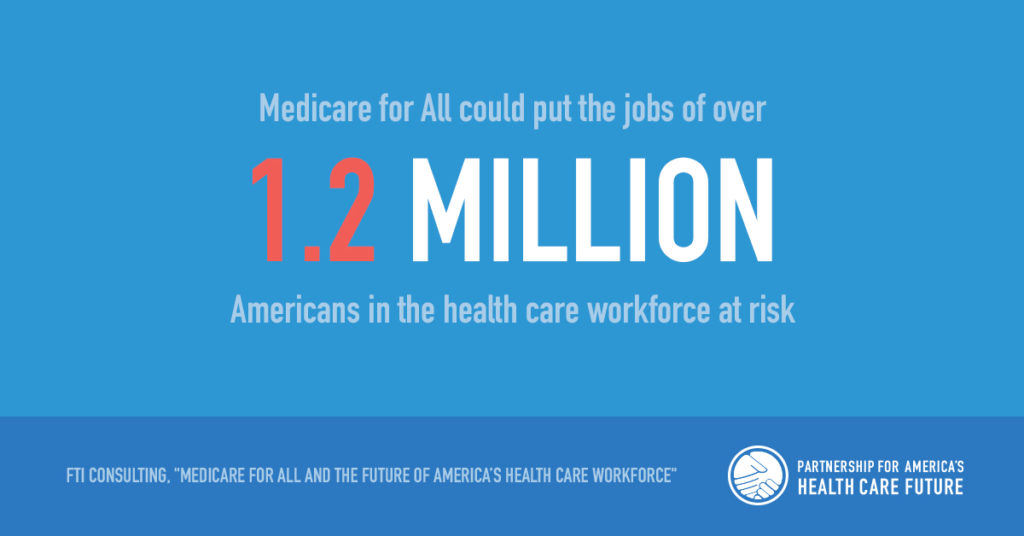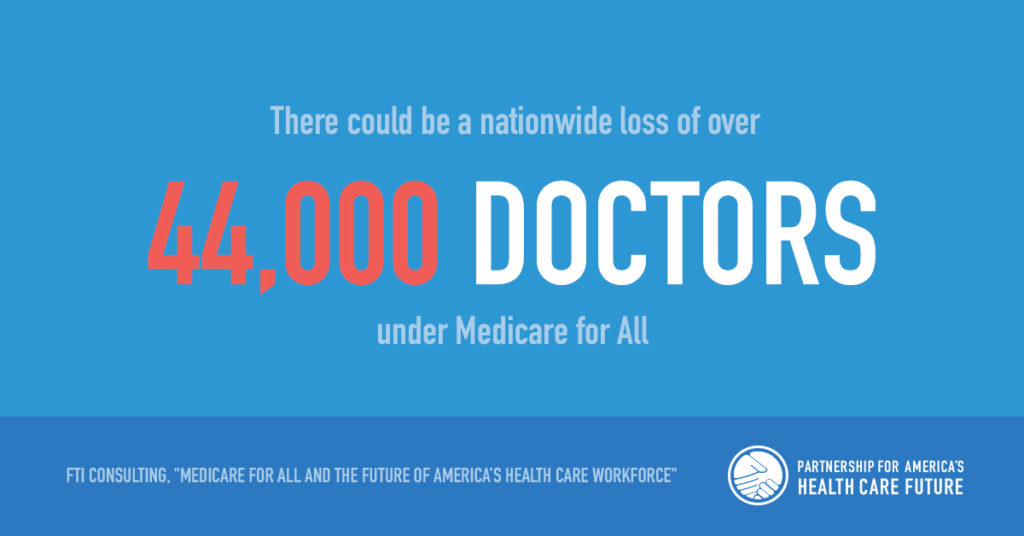ISSUE BRIEF: Medicare for All and the Future of America’s Health Care Workforce
A new issue brief from FTI Consulting provides alarming data on the negative consequences a new one-size-fits-all government health insurance system called Medicare for All could have on America’s doctors and nurses and, as a result, on the high-quality health care American families rely on.
The issue brief, “Medicare for All and the Future of America’s Health Care Workforce,” finds that a new one-size-fits-all government health insurance system known as Medicare for All “could have a significant negative impact on the adequacy of the country’s health care workforce, access to care, and, ultimately, patient outcomes.”
See Its Impacts:


The Truth of What Medicare for All Means for You:
Under Medicare for All, “the number of registered nurse graduates will decline by more than 25% and the entire nurse workforce will shrink by 1.2 million registered nurses by 2050 relative to current projections,” according to the issue brief. This decrease in the health care workforce could have severe impacts on access to care for patients across the nation.
And access to quality care at our nation’s rural hospitals, serving more than 60 million Americans, could also be limited. The issue brief adds that “Medicare for All would result in an estimated decrease of 5.4% in the total number of U.S. physicians, a reduction that would be felt most acutely in rural communities already experiencing access challenges. Further, research shows that shortages of healthcare workers in rural areas widen existing health disparities and contribute to hospital closures.”
Every American deserves access to affordable, high-quality health care, but starting over with Medicare for All or other new one-size-fits-all government health insurance systems would force American patients to pay more to wait longer for worse care, while threatening their access to the nurses and doctors who matter most to their health.
Let’s focus on building on what works in health care and fixing what’s broken, rather than starting over with a one-size-fits-all government health insurance system that could lead to fewer nurses and doctors and put the care of patients, at risk.